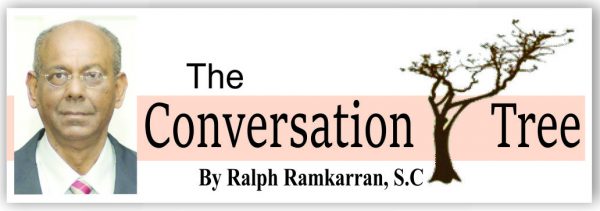
Late last week, as I was awaiting the arrival of my vehicle at a spot in the city where taxi drivers congregate, competing for passengers, one African Guyanese among a mixed group, remarked loudly to me: “Chief, ah hope that this new government gun do good things for us that the last government didn’t do.” It was not a political statement but a hopeful expectation that embraces the vast majority of Guyanese.
Many Guyanese would, of course, have felt more secure and confident about the future if the government had included both major parties. I have come to the conclusion that until a critical mass of the electorate, peacefully or non-peacefully, or a quality of statesmanship that we have not yet experienced, or international opinion, now with significant influence, having ensured the survival of democracy, emerges to lead Guyana out of majoritarianism and into shared governance, we will have to work with what we have, while continuing our efforts.
The PPP has not committed itself either in its Manifesto or its public statements to shared governance. Neither has the APNU+AFC. Both supported “inclusive governance.” It is unlikely, therefore, that any process of constitutional reform, promised by the PPP, will yield anything of significance. For shared governance or other important changes to emerge as decisive recommendations from public consultations, both parties have to publicly advocate the changes. “Inclusive governance” or reform of GECOM does not require national consultations. In the 1999-2000 consultation outreaches for constitutional reform, most Indian Guyanese wanted gun rights, most African Guyanese wanted ancestral land rights and most Amerindians wanted indigenous land rights. The constitution reform proposals made no substantive recommendations on these issues.
But is APNU+AFC likely to co-operate? Its bitterness over this election loss, as over every lost election since 1992, shows. The claim of the PPP’s miraculous manufacturing of 250,000 or 115,000 votes (take your pick) out of 450,000, while in opposition – foolishness that is still taken seriously by many – will continue to feed APNU+AFC’s bitterness and non-cooperation. Its statement on the new government was nothing short of gross. Mr. Granger’s address to the nation last Friday was a shot across the bow indicating that marginalisaltion and discrimination will return as the flagship issues for the new opposition, keeping ethnic discord on the boil.
The problems facing the new government are massive and numerous. The economy, Covid-19, oil, jobs and poverty are likely to be its main focus. Its era in government between 1992 and 2015 was marked by increasing accusations of all kinds and by 2011, it had clearly lost touch. But it is most vulnerable to accusations of corruption, marginalization and arrogance.
Its main answer to the corruption allegations was to challenge the accusers to “prove it.” The government argued that since corruption could not be “proved,” it did not exist and those of us who spoke about it were exaggerating, or anti-government, or vilified. The public and Transparency International know otherwise, have all seen the exposures, know the hidden hands and stratagems leading to unpalatable outcomes, and will be expecting a comprehensive code of conduct, governing ministers and public servants, enshrined into law and overseen by a strengthened Integrity Commission with the legal duty to refer matters for prosecution on statutory benchmarks. In 2015 the PPP preferred to hold elections to avoid the AFC’s no confidence motion, rather than appointing a constitutionally mandated Procurement Commission, demanded by the AFC in return for withdrawing the motion, so intent it was in ensuring that the lack of transparency continued. The renewal of a vibrant, independent, Procurement Commission would send the appropriate message. Modern legislation on bribery and corruption must be implemented.
The charges of marginalization against the PPP will never go away unless both ethnic groups share the executive. In its absence, the new PPP Government must genuinely and creatively engage those who advocate measures for the development of the African Guyanese condition, while at the same time addressing the pressing needs of all deprived Guyanese, including Indian, Amerindian and Mixed Guyanese. I have not heard the advocates for African Guyanese asking for advantages. But I have heard them saying that their history has created problems that are peculiar to them and they require targeted solutions. A long-term, structured, engagement, particularly with advocates, without conditions, is now vital.
In the past, the PPP proved to be notoriously thin-skinned and the mildest criticism often elicited paroxysms of arrogance, abuse and hostility. Apart from the Chronicle, NCN, some news outlets and certain journalists, a shadowy group existed, headed by a Minister just appointed, that trolled on social media, critics or persons out of favour, with the most nauseating abuse. We will soon know if this group is revived. Their works will expose them. If the government and its members do not learn to deal with criticisms, even biased or untrue criticisms, in a tolerant, respectful and civilized manner, and deal with corruption and marginalization, they will get no free pass. They have a one seat majority, like the last government.





